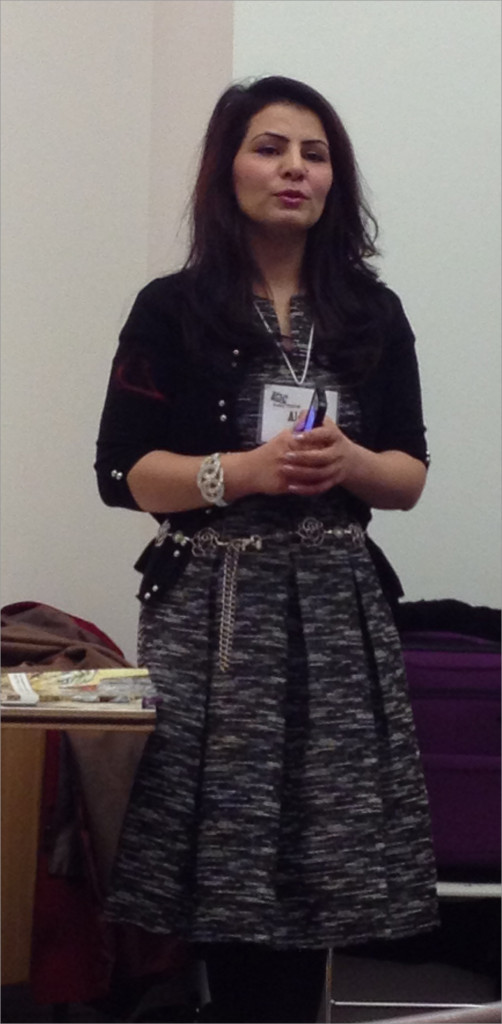
On March 29, in a Saturday morning panel at the 2014 Split This Rock poems of provocation and witness poetry festival, the Afghan Women’s Writing Project shared words and curriculum from Afghan women poets with a group of about 25 women and two men in the Human Rights Campaign building.
Formed in 2009, AWWP offers women in Afghanistan a community to share writing and learn the craft. AWWP is working to help Afghan women become professional writers by offering them a space to work on their craft and share their writing among themselves and others. Afghan women who participate in the workshops can write in English, which is unique, since many women in the country don’t learn English, said Richelle McClain, the panel leader and executive director of the project.
Split This Rock participants’ passionate engagement in a variety of diverse panels demonstrated poetry’s power as a political and educational tool for articulating and sharing sensitive personal and cultural stories. This potential for poetry to breach social and cultural barriers was exemplified in the poems Afghan women writers shared in the panel.
McClain discussed AWWP’s “Lessons from Afghanistan: A Curriculum for Exploring Themes of Love and Forgiveness,” available online, which contains five sections, ranging from personal definitions of love to exploring forgiveness in the face of abuse that these women face in Afghanistan because of their gender. The curriculum provides poems, objectives, classroom activities, writing prompts, and sample questions to explore love, forgiveness, and other themes. It also offers a list of suggested resources. Some activities include questionnaires, small group discussion, and writing individual or group poems about themes like self-love and effective communication.
Educators can use the curriculum’s prompts for writing exercises in their classrooms. Teachers can download individual poems or the entire curriculum by requesting permission from Stacy Parker Le Melle at stacy@awwproject.org. The project also encourages theatrical readings of the work.
During the panel, McClain asked festival attendees to recite several poems from the project. Alaha Ahrar and Mahnaz Rezaie, two Afghan women who attended university in America, read their poems in English and Dari, one of the official languages in Afghanistan.
Poetry has a long history in the country. Ahrar said her great-grandfather was a Sufi poet, part of a deeply mystical tradition. As several recent news articles attest, writing poetry is a gravely perilous pursuit for many Afghan women.
AWWP pays for Afghan women’s transportation to and from writing workshops in Afghanistan, because it is dangerous for them to share their opinions and write in the country, McClain said. The workshops are held in an undisclosed location for increased security. Ahrar added that many of the women remain anonymous when they write. Due to these safety concerns, AWWP only recruits in the country through word of mouth.
Some of the women bring their daughters to the workshops, to expose them to the open atmosphere, McClain said.
Ahrar ended the session by reading her poem titled “Desire for World Peace,” first in Dari, then in English.
“Afghan women have a lot of hope for their country,” she said. “We are very optimistic.”